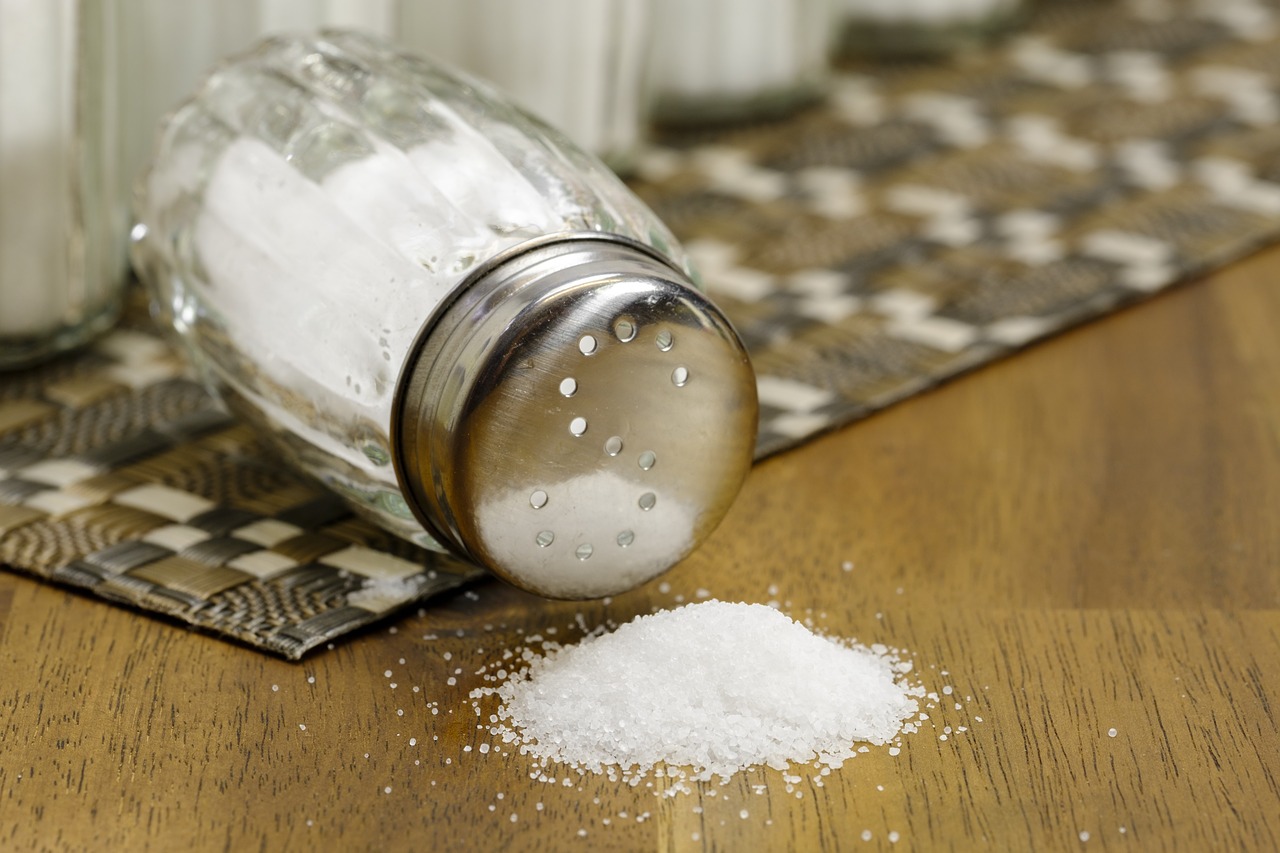
“וכל קרבן מנחתך במלח תמלח…על כל קרבנך תקריב מלח” (ב’,י”ג)
The מחבר (או”ח סימן קס”ז סעיף ח’) writes that a person should not break bread until salt or לפת – something that is eaten together with the bread is brought before him. The Mishna Berura explains the reason for this halacha is that the לחם should be eaten with a taste משום כבוד הברכה. If one adds salt or something eaten together with the bread only after he makes a brocha, this is a lack of כבוד for the brocha. The מחבר continues that if it is פת נקיה which is bread that can be eaten without salt or לפת, or the לחם has spices and salt mixed in like our ,לחם or he only plans on eating,פת חרבה even though it is usually eaten with something else, one does not have to wait for salt before he is בוצע. With regard to פת חרבה the Mishna Berura explains that since he does not plan on eating salt or לפת during this meal, it is not a problem concerning the כבוד of the brocha.
The Rema however adds “ומכל מקום מצוה להביא על כל שלחן מלח קודם שיבצע, כי השלחן דומה למזבח והאכילה כקרבן, ונאמר על כל קרבנך תקריב מלח, והוא מגן מן הפרעניות” – nevertheless it is a mitzvah to bring salt to every table before one breaks the bread, for the table is compared to the מזבח and the eating is compared to that of a ,קרבן and the Torah states that salt must be brought with every קרבן. It is also a protection from bad happenings. The Poskim say that the salt should be left on the table until the end of the seuda. The כף החיים says that it is the responsibility of the wife to bring the salt to the table. We find that the wife of לוט was punished for not bringing the salt.
The Gemara in Berachos נה. says בזמן שבית המקדש קים המזבח מכפר על האדם, עכשו שלחנו של אדם [שנותן מלחמו לדל (כסף משנה)] מכפר עליו שנאמר וידבר אלי זה השלחן אשר לפני ה’ – When there was a Bais Hamikdash the מזבח was an atonement. After the Bais Hamikdash was destroyed the table of every person is an atonement for him. This is by having poor people eating around his table. The second idea that the Rema says that it protects from punishments is from the Midrash which says כשישראל יושבין וממתינין זה את זה עד שיטלו ידיהם, והם בלא מצות, השטן מקטרג עליהם, וברית מלח מגן עליהם – When everyone is sitting at the table waiting for the others to finish washing their hands and they are without any mitzvos, the Satan is מקטרג on them and the ברית מלח – the treaty that was made with the salt that it will be used for קרבנות shields and protects them.
The Mishna Berura brings from the Mekubalim that the bread should be dipped into the salt three times. The numerical value of לחם is that of the name הויה three times.
The מנהג חתם סופר was not to dip the המוציא into salt on ליל שבת. The salt was brought with the הקטרת אברים ופדרים. This was not done on ליל שבת. Therefore the ענין to have salt doesn’t apply.[1]
With regard to מוציא מצה on ליל פסח, the מחבר (סימן תע”ה סעיף א’) writes that they should be dipped into salt. The Rema there says ואין המנהג לטבלם במלח בלילה ראשונה דפת נקי אין צריך מלח” – The מנהג is not to dip it into salt since פת נקי does not need salt. The Mishna Berura explains that even though the rest of the days of Pesach we dip the Matza into salt as explained above, nevertheless on the first two nights of Pesach we don’t do so because it looks more like לחם עני when it is not dipped into salt. The שו”ע הרב says a different reason that it shows more חיבוב מצוה when the matza is eaten plain by itself without anything else mixed together with it. The באר היטב brings from The אריז”ל that even on ליל פסח the matza should be dipped into salt. Others disagree, since the whole purpose of dipping is get rid of the סטרא אחרא from the table. On ליל פסח which is a night that is שמור מן המזיקין one does not have to dip.
The Mishna Berura in Hilchos Rosh Hashana (סימן תקפ”ג ס”ק ג’) brings the מנהג to dip the המוציא into honey. There are many מנהגים regarding this. Some dip the other side of the המוציא into the salt after they eat it with the honey. Others first dip it into the salt then into the honey. Reb Shlomo Zalman Aurbach zt”l would only dip it into honey and not into salt, but would make sure that the salt was on the table. This was also the מנהג of the חזו”א and the Steipler zt”l.[2]
Prepared by R’ Avrohom Yehoshua Ziskind
[1] This סברה is only true according to the first reasoning of the Rema that we have salt because it is like a קרבן. According to the reason that it protects us, Shabbos does not need this protection and even during the day we should not need salt.
[2] Sources: אוצר פלאות התורה,משנה ברורה דרשו,פסקי תשובות